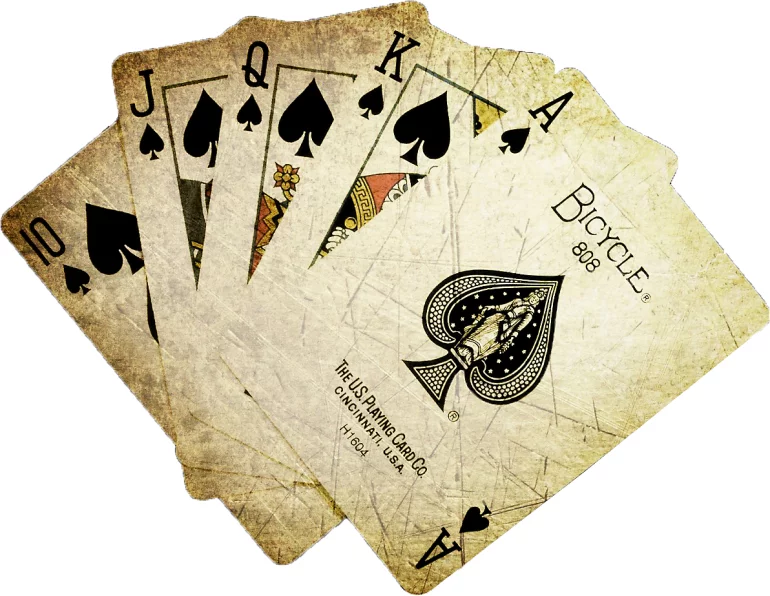Today, poker is the most popular card game globally. But when and how did it originate? Hardly can anyone name the exact date or place of poker's birth.
Poker was not born in its current form, but evolved from another game. Even calling a game that was a direct ancestor of poker is impossible. Different sources mention different games and dates. It all converges on one thing: poker is a symbiosis.

We will review some poker theories and provide the reader with the opportunity to choose their favorite version.
Ancient History of Poker
Poker is an ancestor of the Persian game of As Nas. The deck consisted of 25 cards and had five suits. The game was played among five people.
Poker came to Europe because of the trade with Persia in the 18th century.
Europe liked this new game, so several card games similar to modern poker appeared.
- It was brag in England,
- pochen in Germany,
- and poque in France.
They were all money games, and the player with the highest combination won.
The next stage was American poker. The French took the game back when America was colonized.
In the 20th century, poker became a national game in America. Additionally, in the early 20th century, the most popular poker variant, Texas Hold'em, emerged.
European Forerunners of Poker
The ancestors of poker were "primero" and "la prime" in Spain and France in the 16th century. The rules were simple.
- Each player had three cards.
- The person with the highest combination won.
- Some combinations, such as straight and flush, were the same as in modern poker games.
Further, brag, pochen, and poque games appeared. Then, French poker was brought to America.
In 1870, poker made its return to Europe when Colonel Jacob Schenck, the U.S. ambassador to the United Kingdom, introduced the game to Queen Victoria's court. The Queen was very interested in this game, and the Colonel took the time to teach her the rules.
Chinese Trace in Poker History
Some historians believe that Chinese dominoes were the earliest ancestors of the game of poker.
Birth of Modern Poker
There is also the American theory of the origin of poker. Traveling across North America, cartographer Jonathan Green often watched the sailors playing cards.
- The game was played among 2 to 4 people.
- The deck consisted of aces, kings, queens, jacks, and tens.
- The sailors bluffed and deceived each other, calling it a "game of cheaters."
One of them told him that distracting the victim of this card game was a popular trick before such methods were used.
More Facts about Poker
Here is some more exciting information on the game.
- In the 20th century, the first poker club was created. It offered Texas Hold'em, Omaha, Stud, and Draw poker.
- The most common poker game is Texas Hold'em. It appeared in Robstown, Texas. Further, this version migrated to Dallas and later to Las Vegas.
- Texas Hold'em is the official game of the world competitions.
- In 1968, Tom Moore, the owner of Holiday Casino in Reno, Nevada, held the first big poker competition, the Texas Gamblers Reunion. Two years later, in 1970, the first World Series of Poker (WSOP) was held. Now, the WSOP is held every year on this date.
Please read other articles about poker on Casinoz.
























